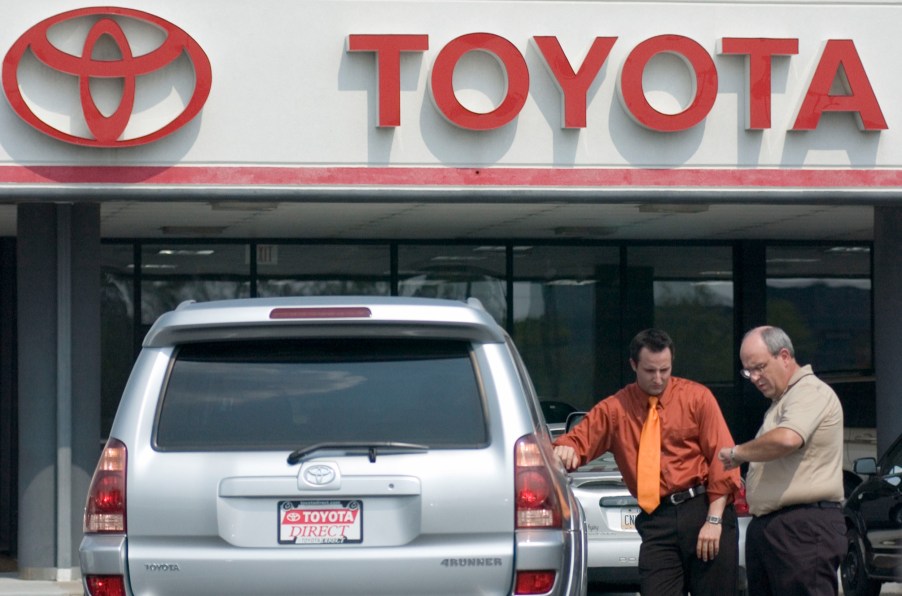
What Happens if the Dealership Doesn’t Pay Off the Car You Traded In?
When shopping for your next car at the dealership, the salesperson may offer to discount the car that you’re buying if you trade in your current car. They may even strike up a good deal that you can’t refuse. But when it’s all said and done, you might want to make sure that your trade-in gets paid off if there’s still a loan attached to it. If the dealership doesn’t pay it off, then you could end up in deep water.
The dealership’s failure to pay can hurt your credit

Whenever you trade in a car for another one at a dealership, it’s the dealership’s responsibility to pay off the existing loan of the car you traded in within a certain amount of time. The remaining balance will then get tacked onto the price of the newer car that you’re trading for. However, it can be a common mistake for a dealership to not pay off the existing auto loan in time, which could have negative repercussions on your credit.
A news story from ABC7 in Chicago tells a story of car buyer, Richard Williams, who traded in his 2007 Cadillac Escalade for a 2011 Range Rover at a local used car dealer. Williams noted that a month later, he started getting calls from his previous lender letting him know that the car wasn’t paid off. Unfortunately, months of back-and-forth conversations with the dealership ensued. During that time, William’s credit score dropped.
In the end, the dealership said that they paid off the loan a few months later, but blamed Williams’ credit score dropping on the fact that he was late on his payments when he traded the car in.
Waiting for the dealership to pay off your previous car loan could be a nail-biting experience. However, there are steps you can take to ensure that you don’t have to go through what Richard Williams went through.
What can you do to make sure the loan is paid off?

If you end up trading in your financed car, then you can always contact the lender afterward and let them know that the payoff amount should be coming to them. If you want to be proactive about it, then you can even call the lender before trading in the vehicle and let them know ahead of time. It also doesn’t hurt to get your car’s 10-day payoff amount from the lender while you’re at it. It’s good to know when you’re going over the sales figures with the dealer.
Paying the loan yourself can save you a lot

If you would rather prevent any potential headaches altogether, then you might want to consider paying off the existing loan yourself first. By doing so, you’ll save money on the interest of the loan and by not tacking on the remainder of the loan to a new one. Lastly, paying off the loan yourself will have you rest assured that you don’t need to cross your fingers and hope the dealer does it in time.
The one thing to remember when going this route, though, is that the car’s title could take a few weeks or a month to get to you. So, you’ll need to wait for that first before you’re able to trade in the car.



